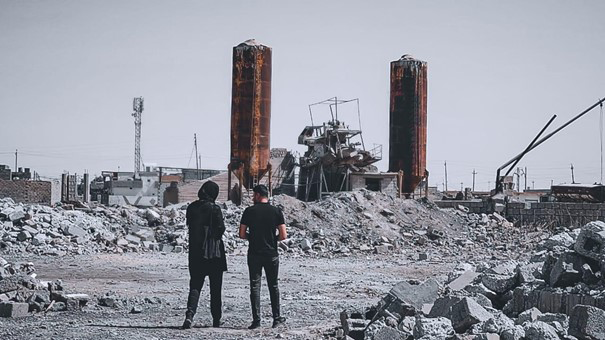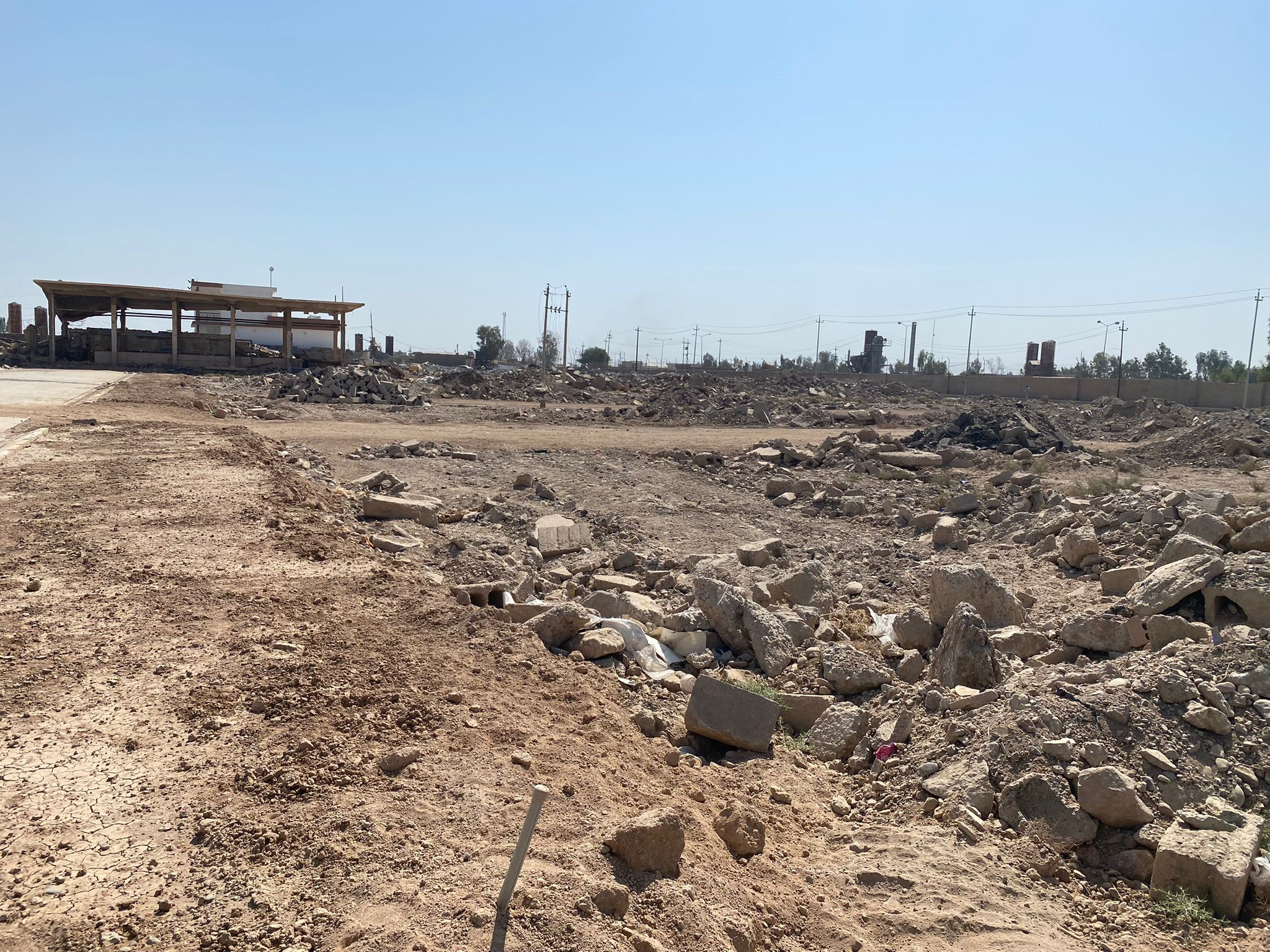How is the situation in Hawija, the Iraqi city that was hit hard by a Dutch bombardment? PAX traveled to the city to talk to its residents. Many of them lost family, income and a future. Colleague Roos Boer reports in this blog.

The transition is abrupt. After an hour’s drive on the paved road from Kirkuk, we take a turn at a roundabout into the road where the industrial area of Hawija once was. The paved road ends and turns into rubble. This is the site where an ISIS IED factory was bombed by the Netherlands, and where the rubble is the silent witness of the drama that unfolded here.
In October 2020, PAX, together with the British organization Airwars, published the report Seeing through the Rubble, in which we examined the long-term impact on civilians of the US-led anti-ISIS coalition in three cities in Iraq and Syria. One of those three cities was Hawija, where a Dutch air raid on an ISIS bomb factory led to massive secondary explosions that wiped out an entire neighborhood. This resulted in an estimated 70 civilian deaths and hundreds of injuries.
When explosive weapons are used in cities, the consequences for civilians are often catastrophic. Research indicates that 9 out of 10 direct victims are civilians. This is why PAX is working internationally for states to adopt a political declaration to limit the use of explosive weapons in cities and towns.
Impact is bigger and more complex
But the impact is much bigger and more complex than the direct victims. Our report on Iraq and Syria focused mainly on the long-term consequences for civilians there. Our interview with the mayor of Hawija last year already showed at the time that the neighborhood was still in ruins, and victims had still not received compensation for the damage suffered. Roads were still destroyed, most of the shops and factories had not been repaired, and both electricity and water networks had not been repaired.
When we walk into the area we are immediately surrounded by people who want to share their stories. People who lost relatives, lost their jobs, were injured themselves and ask us who will help them. They show pictures, and want to know: “ who will help us so we can rebuild our lives?”
In December 2020, after a motion from the members of parliament Belhaj and Voordewind and with a reference to our report, then Minister Bijleveld announced that the Netherlands would make 4 million dollars available “to the benefit of the community in Hawija, Iraq, who on the night of 2 on 3 June 2015 was hit by a Dutch weapon deployment.” In a 1,5 year period, the project would “rehabilitate the local electricity network that directly benefits the industrial area and the surrounding residential area” and “restore essential infrastructure and promote employment in the longer term, in direct consultation with the community.”
Whether four million is enough, and what the affected families should do to resume their lives without proper individual compensation, is the question. Exactly half of the period of 1,5 years that was announced by the minister has now expired. Most of the victims we speak to have not seen the money, are traumatized, desparate and need help. “When the NGOs come here, they have to help us, that is their mission on paper. Where is our compensation?”
Later that day I speak with 30 women who were all affected by the attack. It is suspected that many victims still lie under the rubble, internally displaced persons who were not registered anywhere, but who have disappeared since. People have no income anymore. Everyone we talk to has a story, and the trauma in the community is immense. The medical problems, amputations, lack of incomes and the destruction of the companies; where do you start to rebuild your life when you have nothing left? They have come to tell their story, and one thing is very clear. The women I speak to today are not getting the help they need.
Chaos everywhere
“My 7-year-old son has burns on his face. The kids at school are afraid of him, and he can’t go to school anymore. What did he do to go through this?” Another woman shares how her husband was injured in the attack, and how chaotic the situation was directly after the attack. “There was chaos everywhere, we drove my husband to the hospital in the night. We didn’t see that we were driving over dead bodies, there was debris and dust everywhere. The next day we saw that the tires of our car were smeared with flesh and blood. I feel guilty but we didn’t know. We didn’t know. My son is traumatized and can no longer eat meat. To this day.”
When I hand over our report to the mayor of Hawija, he also expresses his dissatisfaction. It is hard to monitor for him how international organizations’ money is spent, and repeats that the people need to be helped.
It seems like a tangle of bureaucracy and incompetence that is difficult to understand in the short time we’ve been here. But what I can grasp is the immense grief of mothers who lost their children and husbands. Who no longer have an income, and live on what others voluntarily give to them. Whose despair, mistrust and and intense grief is all too clear.
In the minister’s letter from December 2020, the Minister at that time, Bijleveld, promised that “The Parliament will be kept informed of the progress and results of the projects.”
Six years is a long time. Four years since the liberation of Hawija. Six years in hardship and grief is an eternity. The women we talk to are not getting the help they need and deserve. Time for an update from the minister and most of all, high time for compensation for the victims.
—
PAX , Utrecht University and al Ghad will publish their large research on the impact on civilians from the Dutch airstrike later this year.




